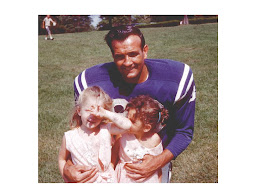 Recently I floated the idea that one requirement of Medicare enrollment should the completion of some type of "End of Life" document-at a minimum a Living Will and a Health Care proxy (with a regular renewal/update also required). Everyone knows that too many health care dollars are spent in the last hours, days and months of life because (just a few of many reasons):
Recently I floated the idea that one requirement of Medicare enrollment should the completion of some type of "End of Life" document-at a minimum a Living Will and a Health Care proxy (with a regular renewal/update also required). Everyone knows that too many health care dollars are spent in the last hours, days and months of life because (just a few of many reasons):- No discussions have ever been had with the one who becomes critically ill (too depression, too sensitive, too...)
- Family members dislike the burden of decision making (are we killing Mom/Dad?)
- Physicians are ill-trained to confront the challenging issues
- The unexpected too often happens
- Promoting this will seem "cold", uncaring
- We can't impose this sort of thing, it is too individualized
- How could we enforce??
Further reading:
Daily Finance: Costs Too High
Kaiser Health News
Cost of Death Video


I agree completely with this idea. I would take it one step further and argue that the decision regarding when care becomes futile should reside in the hands of the physicians, not the families.
ReplyDeleteIt may seem cold at first blush, but not ultimately as cold as the willingness of some families to put their loved ones through what sometimes amounts to meaningless torture because of lack of understanding or an inability to let go.
I am also a female neurosurgeon. We have all seen patient families struggle with these decisions, which sometimes leave lasting scars on family dynamics.
There is already a movement toward having a Palliative Care service in the hospital (we have one) that is responsible for dealing with these issues and more. It would be appropriate to make the Palliative Care specialist (MD) the decision maker - if he/she is in doubt about a particular case, he/she can consult the appropriate physician to help out (us, for instance, if a brain death exam is needed). Every patient should have an automatic Palliative Care consult upon admission to the hospital for any reason, like the Leapfrog protocol for critical care docs in the ICU. This would be a way to enforce this type of decision making even in patients who are not critically ill.
This process should not be limited to Medicare enrollees; all adults should be included. New adults (18 yo) can be educated about things like health insurance and the need for primary care at the same time end of life counseling is performed.
Count me in! Now how do we convince everyone else?
Medicare is just a place to start. In the US much of the insurance world follows Medicare-neurosurgeons are particularly sensitive about the "Death Panel" issue but a grassroots movement might help push the issue. thanks for following/commenting on my blog!
ReplyDelete